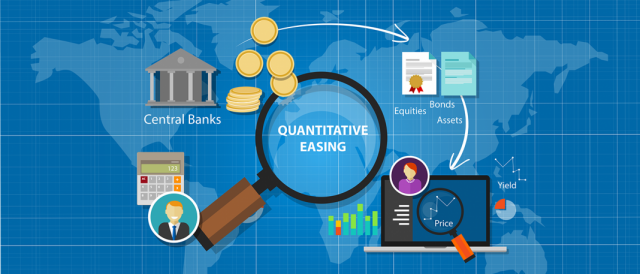The Bank of England ramped up its quantitative easing (QE) programme by a further £100 billion on Thursday, to help fight the “unprecedented” economic downturn precipitated by the global Covid-19 pandemic.
The Bank’s Monetary Policy Committee (MPC) voted by 8-1 to increase the size of its bond-buying programme. It also voted unanimously to maintain interest rates at their historic low of 0.10 per cent; the lowest cost of borrowing since the Bank’s formation in 1694.
The quantitative easing stimulus was widely anticipated by economists, but the Bank slowed the pace of asset purchases from autumn to the end of the year in a move suggesting that economic activity was picking up faster than it had expected.
Andrew Bailey, governor of the Bank of England, said the additional QE was needed to improve the outlook for the labour market and that people should not interpret too much from the slowing of the pace of asset purchases. “We’re slowing [asset purchases] … from warp speed to something that by any historical standards still looks fast,” he said.
The move comes after the Office of National Statistics (ONS) released figures last Friday revealing that the economy had shrunk by 20.4 per cent month on month during a full month of lockdown in April, by far the largest contraction on record, and on Thursday this week published inflation data for May showing that UK inflation had slowed to 0.5 per cent – pushing the economy alarmingly closer to a deflationary trap.
The Bank said more recent indicators suggested the economy was starting to recover, however.
Minutes from the MPC’s June meeting said: “Payments data are consistent with a recovery in consumer spending in May and June, and housing activity has started to pick up recently.”
However, Mr Bailey cautioned that the outlook for the economy remained uncertain. He said: “We don’t want to get too carried away by this. Let’s be clear, we’re still living in very unusual times.”
The minutes went on to say: “While recent demand and output data had not been quite as negative as expected, other indicators suggested greater risks around the potential for longer-lasting damage to the economy from the pandemic.”
The minutes indicated there had been no discussion of interest rates being lowered into negative territory, with the matter still being reviewed by the Bank’s economists.
The MPC said the latest UK and international economic data was better than it had feared during its May 7 meeting. In Britain “payments data are consistent with a recovery in consumer spending in May and June, and housing activity has started to pick up recently”, the committee said, but it added that the job market had “weakened materially”.
Samuel Tombs, UK economist at Pantheon Macroeconomics, said the Bank’s move to slow purchases of government bonds meant the Treasury would no longer be able to count on the central bank to buy all of the bonds it needed to fund additional borrowing.
“The stock of gilts in private sector hands is set to rise — especially if the chancellor signs off fiscal stimulus later this year — putting some upward pressure on [gilt] yields,” he told the Financial Times.
Thomas Pugh, UK economist at Capital Economics, said the MPC’s decision “implies that the bank thinks it has done enough for now”.
Faisal Islam, economics editor at BBC News, said: “The Bank of England has increased its support for the economy, despite it assessing that the outlook is not quite as awful as its scenario last month. The economy is on course for a hit in the second quarter of about 20 per cent compared with the final three months of 2019. That’s still historic, and off the scale, but not quite as extreme as the 27 per cent it predicted in May.
“The extra £100 billion of purchases of government bonds also has the air of an insurance policy.
“Most of the MPC were concerned about a couple of factors. A less awful outlook does not mean the recovery will be quick. This is for two reasons stretching beyond economics.
“There is a fear that the ‘prevalence of the virus’ in the UK will mean that Britons will continue to socially distance, voluntarily, holding back the recovery more than other nations (Germany would be an example).
“Related to that was the idea that more QE now could mitigate the economic impact of ‘higher rates of Covid-19 infection going forward’ – a second wave.
“So the news is still bad, but less awful. But risks beyond the purely economic led to more billions being injected into the economy.”
18th June 2020.









